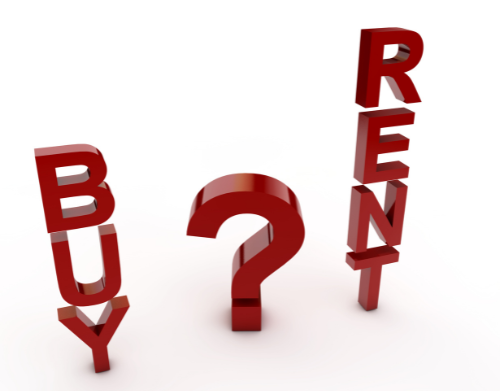Deciding Between Buying and Renting: A Guide to Making the Right Choice

In the age-old debate of buying versus renting, there's no one-size-fits-all answer. The decision depends on various factors, including financial circumstances, lifestyle preferences, and long-term goals. Whether you're searching for a place to call home or contemplating investment opportunities, understanding the pros and cons of each option is crucial.
Buying:
Purchasing a home offers a sense of permanence and stability. It's an investment in your future, providing the opportunity to build equity and potentially benefit from appreciation in property value over time. Homeownership also grants greater control over customization and renovations, allowing you to create a space that truly reflects your style and preferences.
However, buying a home requires a significant upfront investment. Beyond the down payment, there are closing costs, property taxes, insurance, and ongoing maintenance expenses to consider. Market fluctuations can affect property values, impacting your investment returns. Additionally, committing to a mortgage means taking on long-term financial responsibilities and tying up liquidity.
Renting:
Renting offers flexibility and freedom, making it an attractive option for those who prefer to keep their options open. It typically involves lower upfront costs compared to buying, as renters don't have to worry about a down payment or ongoing maintenance expenses. Renting also provides the opportunity to live in desirable locations without the commitment of homeownership.
On the flip side, renting means sacrificing the potential benefits of homeownership, such as equity accumulation and property appreciation. Rent payments do not contribute to building wealth or asset ownership. Additionally, renters are subject to the rules and regulations of landlords, which may limit their ability to customize or make structural changes to the property.
Making the Decision:
When weighing the decision between buying and renting, it's essential to consider your financial situation, lifestyle preferences, and long-term goals. Ask yourself questions like:
- How stable is my income, and can I afford the upfront costs associated with buying a home?
- Do I value flexibility and the ability to easily relocate, or am I seeking stability and long-term investment opportunities?
- What are my long-term housing goals, and how do they align with my financial objectives?
Ultimately, there's no right or wrong answer only what's best for you at this moment in your life. Whether you choose to buy or rent, remember that both options have their advantages and drawbacks. By carefully evaluating your priorities and conducting thorough research, you can make an informed decision that suits your unique circumstances.


